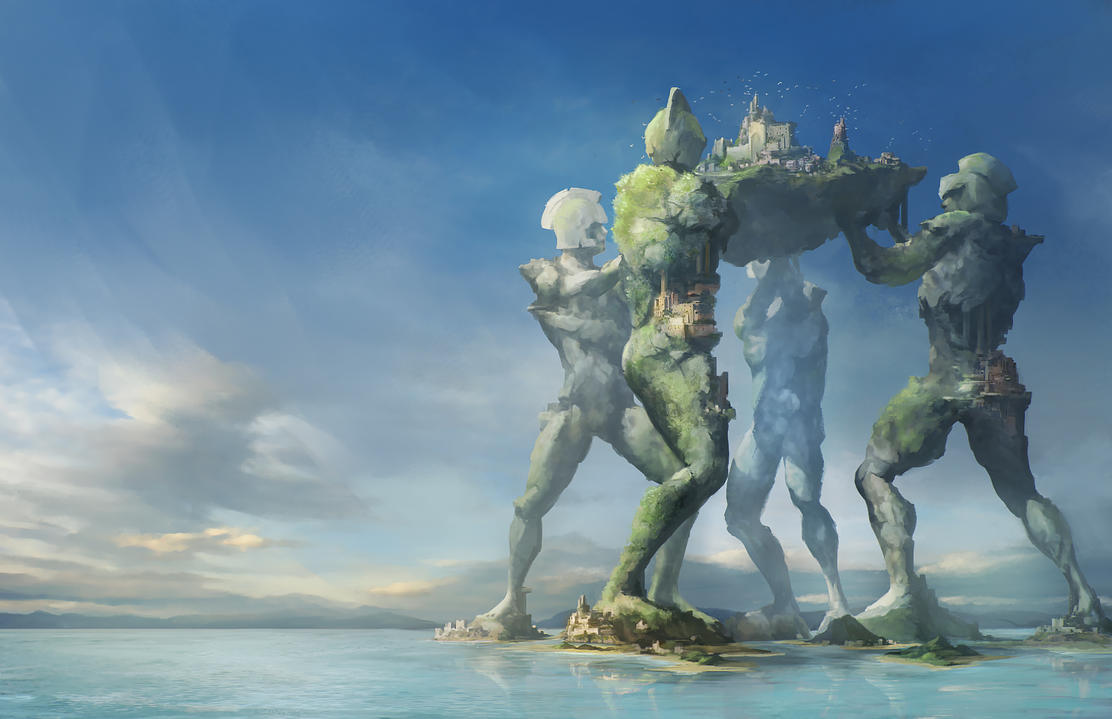I've written about using illness in gaming before. That post was pretty general but I think there were a lot of salient points there for the average game.
Gods of the Fall isn't your average game however.
The setting of the Afterworld is, in a way, a two-fold setting. You have the mortal level of a high fantasy world where the gods have died, despots rule, and darkness pervades much of the land. And then you have the god level where the players can seize the power of heaven for themselves, eradicate despots, venture to hell to destroy demons like no other, and eventually bring about lasting change to the world.
Everything in that original post works just fine for the mortal level of Gods of the Fall (or any other setting), but when you have godlings as characters you have to up the ante a bit. Diseases that can effect young gods need to be more than just powerful versions of mortal disease. If you can normally run around calling down divine fire and slaying demons getting the sniffles is ... disappointing.
It's also somewhat silly. Characters can and likely will have a shift or two of divine stamina among them. These characters are going to be unlikely to fail a save versus disease. Godly diseases probably shouldn't infect characters the same way as mortal diseases. Communicable diseases of the mind, or magical (like a curse) or even those that infect based on beauty or hideousness, or skills of certain kind. Its also possible that one simply cannot resist some divine diseases and must either ride them out, or possibly even carry out a divine labor to become cured!
The symptoms should also be similarly grand in scope. A couple of points of damage is probably not going to be very interesting (or crippling), but those same couple of points will be downright terrifying if damage taken from the disease is not recoverable until the disease is first cured. Similarly a step down the damage track is debilitating but the loss of divine shifts is both more interesting and more in theme with a divine disease.
Another possible symptom of a divine disease could be a geas, a forced behavior that is brought on by the disease such as being unable to refuse hospitality, the inability to use certain items or consume certain foods, and similar. Look at Gaelic mythology for some examples of this. Breaking a geas, if the character is able, often strips them of their power or otherwise makes them weak.
A really brutal example of this is the Irish figure Cúchulainn. He has a geas to never eat dog meat, and he is also bound by a geas to eat any food offered to him by a woman. When a witch learns of these she is able to bring about his downfall by offering him dog meat. With no way to avoid breaking one of his geas he is rendered powerless and eventually perishes.When thinking up new diseases for god level characters the GM needs to be thinking WAY outside the box. So to close this blog out here's a couple of ideas to get you started.
- Nod's Lament - This disease seems to come out of nowhere and causes horrific nightmare and paranoia and even waking visions of terror. It grips a potential god whenever they try and rest. Every time a character tried to take a rest to recover pool points they must succeed on an Intellect defense roll with a level equal to the number of points rolled to recover. Failure results in the character regaining none of the points and wasting the rest opportunity. Recovery is automatic after successfully resting three times.
- Freedom's Bane - Contracted as a result of interacting with Seraph's of Sin the character gains a random geas as determined by the GM. This gaes remains until the character completes a labor or slays the seraph (if it still lives).
- Note you may want to use a GM Intrusion when using this one the first time as there is no chance to "save vs disease"




